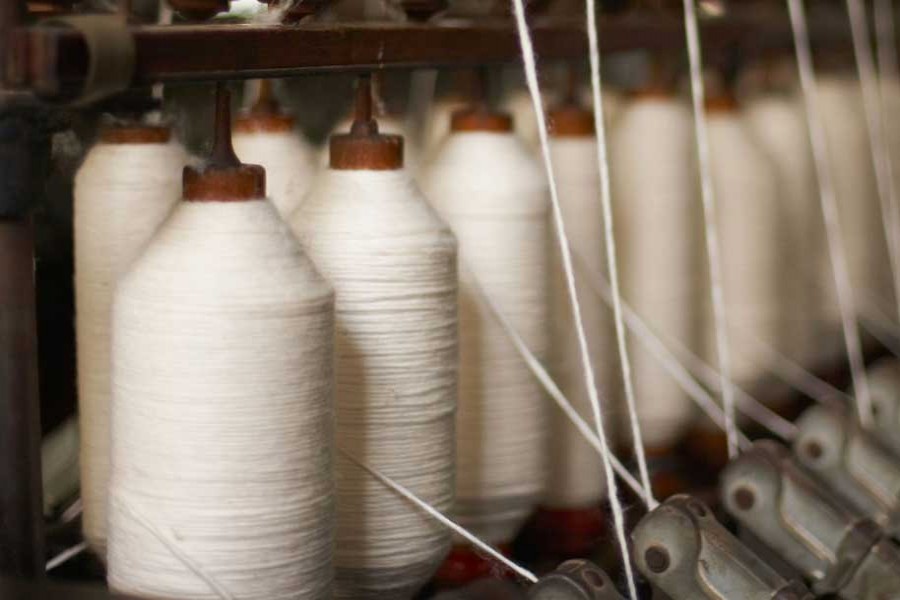Turkey is likely to impose higher rate of anti-dumping duty on export of yarn/thread from Bangladesh upon its failure to prove the alleged violation of the product's rules of origin, industry insiders said.
A team of Turkish consultants recently informed the Bangladesh Textile Mills Association (BTMA) that the Turkish government has launched an investigation in this regard. They have also informed the Bangladesh embassy in Turkey about the issue through a verbal note, a BTMA source said.
According to an e-mail sent by the team, investigation started on December 29 last. "Bangladeshi companies need to respond within three weeks. If they don't respond, they will be subject to very high anti-dumping measures."
Now, the government of Turkey is alleging that products coming from Bangladesh do not originate in this country. Bangladeshi exporters are basically circumventing existing measures, the e-mail mentioned.
Some 11 companies now export yarn/thread of artificial fibers to Turkey. Irregularities have been found against five export-oriented companies out of 11, a BTMA source said.
Local textile owners fear that Turkey might impose higher anti-dumping duty on exports of yarn/thread of synthetic staple fibers. It will come as a severe blow to the country's genuine yarn exporters if the Turkish government imposes duty and stops importing the items, he said.
"We have informed the Bangladesh embassy in Turkey about anti-dumping investigation initiated by Turkey into synthetic staple fibers of Bangladesh. We will take necessary steps after getting authentic info in this regard," additional secretary of the ministry of commerce Md Shafiqul Islam told the FE.
Some companies have just started exporting yarn/thread of synthetic staple fibers to Turkey on a small scale.
"We don't want that regular exporters would get hurt by some irregular exporters. Besides, the country's image is linked with it," BTMA Secretary General Feroz Ahmed told the FE.
He said they heard that four items of yarn/thread have been brought under investigation by the Turkish government.
Exports of man-made yarns started last year. The volume of exported goods is poor, he added.
BTMA last week urged the commerce ministry to take necessary steps in this regard.
Earlier, Turkey imposed a 17.5 per cent duty on ready-made garment (RMG) imports from Least Developed Countries (LDCs) in 2011 to safeguard its local industry.
Currently, the Turkish government imposed anti-dumping duty against China, Indonesia, India, Malaysia, Taiwan, Pakistan and Vietnam.
Fiber is a threadlike strand used for spinning yarn. On the basis of source, fibers are classified as natural and man-made or synthetic fibers.
Natural fibers like cotton, silk, linen, wool etc are obtained from natural products. Synthetic fibers like fiberglass, nylon, rayon etc are artificially made. They are usually long-chain polymers, produced industrially by condensation of many small units.


